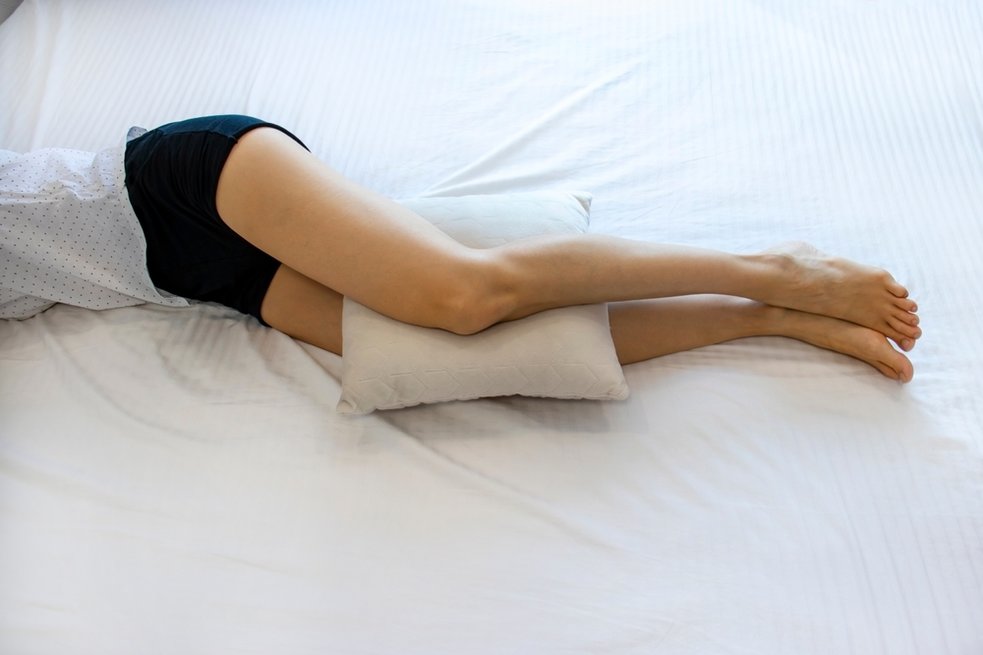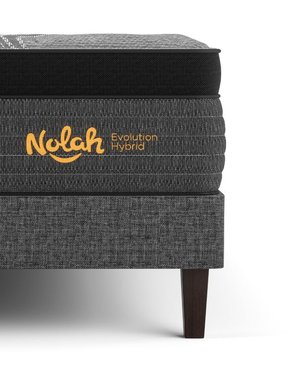How to Relieve Hip Pain While Sleeping: Causes and Tips for Immediate Relief
You’re warm and cozy in your bed and have found the most comfortable sleep position, this is it, a good night’s sleep is just around the corner. Then it starts, that familiar pain you thought would leave you alone for just one night. Hip pain while sleeping is just as bad as shoulder pain at night. It steals your comfortable sleep and makes you miserable.
How to relieve hip pain while sleeping is a common question, you may think that only pharmaceutical relief exists but as you will read here, there are things you can do tonight to help you get better sleep. Let’s dive in and learn what causes hip pain when sleeping so we can discover tips for immediate relief.
Why Does My Hip Joint Hurt at Night?
Hip pain when sleeping on either side can have many causes: hip strain or injury, medical conditions such as bursitis, tendinitis, or osteoarthritis. Exercise related pain or strain, a poor sleep position, or transferred pain from another area of your body can be felt in the hip region. Seek medical attention if you’re suffering badly. If you think it’s merely a small strain, resting with a pillow between your knees could bring some comfort.
What Can Cause Hip Pain While Sleeping?
Bursitis: When the small sacs that cushion your hip joints become inflamed. Bursitis pain is often very sharp when it begins and eventually subsides to a dull ache. If your hip pain is only noticeable when you lie down on your hip, it could be bursitis
Tendinopathy: This tendon disorder otherwise knows as tendinitis or tendonitis, results in diminished function, pain, and swelling. If the pain is incessant, especially when moving, it could be tendinopathy.
Osteoarthritis: The most common form of arthritis and presents itself when the protective cartilage that shields the ends of your bones shrinks. Any joint is at risk of developing osteoarthritis but particularly the spine, hips, knees, and hands. Pain, tenderness, grating sensation, and loss of flexibility are some of the main symptoms of osteoarthritis
Exercise-Related Causes: Certain exercises can be a potential cause of hip pain; running, seated knee raise, hip hinge, seated leg extension, among others, can put a strain on the hip area. Resulting in muscle strains and pain.
Pregnancy: Hip pain during pregnancy usually occurs in the third trimester. The ligaments keeping the sacroiliac joins intact that is connected to the spine and pelvis, become loose with the introduction of the hormone, relaxin. Some relief can be found in using a body pillow.
Sleeping Positions and Unsuitable Mattresses: Sleeping on an inadequate mattress is a major cause of hip pain when sleeping on either side. Upgrading your uncomfortable mattress to one that offers superior pressure relief and cooling comfort could bring respite from hip pain when sleeping
Switching your sleep position could offer some immediate relief from hip pain when sleeping.
Can Lying on Your Side Cause Hip Pain?
If you’re a side sleeper and your mattress is too hard, it could cause some discomfort in the hip area because the mattress is stimulating your pressure points by not contouring to your body. Equally, a mattress that is too soft will cause your hips to sink, putting pressure on your spine. Side sleepers find ultimate comfort in a mattress that provides optimal pressure relief.
How to Relieve Hip Pain While Sleeping
Switch your sleep position to fix hip pain while sleeping and put a pillow between your knees to align the hips. A pillow under your knees could reduce hip stress also. The best mattress for hip pain is pressure relieving while offering cooling comfort all night. If you’re a side sleeper, a soft, pressure relieving mattress is pivotal to sleep comfort. How to fix hip pain while sleeping is easier than you think.
Relieving Hip Pain While Sleeping: Tips for Immediate Relief
Change Your Sleep Position
Switching your sleep position could offer some immediate relief from hip pain when sleeping. If you’re a side sleeper, try sleeping on your back and see how it feels. Although you will instinctively roll to your favored position, do your best to stay on your back. Side sleepers can also find relief with the following tips.
Place Wedge-Shape Pillows Under Your Hip to Provide Cushioning
A wedge pillow under your hips will provide a comfortable cushion to your sleep style. A folded blanket could also work if you don't have a wedge pillow. The pillow or blanket under your knees could reduce stress in your hips.
Sleep With a Pillow Between Your Knees to Reduce Stress Across Your Hips
Side sleepers could find immediate relief by placing a pillow between the knees to align the hips and relieve pressure. Pregnant women who are suffering from lower back pain may also find this sleep style comfortable and pain relieving.

Put One or More Pillows Under Your Knees
A pillow under your knees could relieve hip pain while sleeping as it could help the spine align better. A quality pillow under your head and knees working together could give you a comfortable sleep position while you manage night time hip pain.
Find a Mattress that Provides Pressure Relief
When figuring out how to relieve hip pain while sleeping, nothing beats a new mattress that is designed to offer pressure relief as well as cooling comfort. A new mattress, like of one Nolah's award-winning pressure relief mattresses could give you a new lease of life while being a useful tool in your hip pain management strategy.
What Is the Best Mattress for Hip Pain While Sleeping?
Foam vs. Innerspring Mattresses for Hip Pain
If you’re a back sleeper a spring mattress could provide some relief from hip pain when sleeping, although a spring mattress may not be as pressure relieving as more modern mattress alternatives. A foam mattress could be a better option for side sleepers as it will allow the hips to sink into the mattress better than spring, this may alleviate some pressure on the hips.
Soft vs. Firm Mattresses for Hip Pain
If the mattress is too firm it could add to hip pain. A mattress of medium firmness is recommended for those struggling with hip pain. A pressure relieving mattress is ideal to help alleviate nighttime hip pain because it will be soft yet supportive. A mattress that is too hard may not bring a restful sleep because it’s too strenuous on the pressure points. A mattress that is too soft may not offer relief if the body sinks into it too much. A modern pressure relieving mattress of medium firmness could benefit those suffering night time hip pain immensely.
Conclusion
Hip pain when sleeping on either side can be caused and exacerbated by many things; sleeping in a bad position, injury or strain, illness, or sleeping on an uncomfortable mattress. If you’re experiencing hip pain when sleeping, first and foremost seek medical advice. After this, making some adjustments to your sleep hygiene that could aid your recovery and pain management.
A pillow between your knees if you’re a side sleeper or under your knees and back as a back sleeper, could offer some comfort. No matter your sleep position, it’s vital to sleep on a quality mattress that provides pressure relief and contours to your body to align the spine and hips.
Your night time hip pain can easily be managed by altering your sleep position, sleep hygiene, seeking medical advice, and possibly upgrading your mattress to a more pressure relieving alternative.
Disclaimer: Nolah does not provide medical advice. All resources on the Nolah blog, including this article, are informational only and do not replace professional medical counsel. Talk to your doctor about any health, mental health, or sleep-related issues.
You May Also Like These Articles
Don't Sleep on Exclusive Offers
Sign up for our newsletter, and you'll be the first to know about discounts, deals, and what's new at Nolah.
Ready for Bed?
